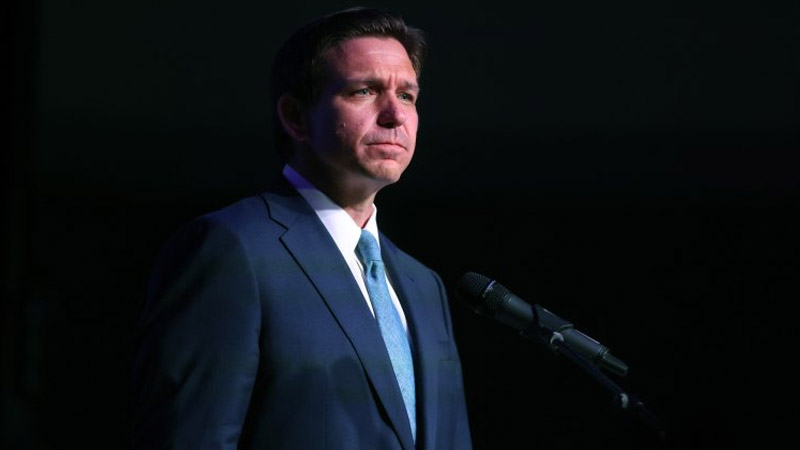A federal judge sharply questioned an attorney representing the DeSantis administration on Thursday morning during a heated hearing over the state’s attempts to block broadcasters from airing an ad supporting an abortion-rights amendment in Florida. The legal dispute centers around Amendment 4, which would protect abortion access beyond viability and in cases where the life of the pregnant person is at risk.
Tallahassee U.S. District Judge Mark Walker pressed attorney Brian Barnes, who represents Florida Surgeon General Joseph Ladapo in the case, over the specifics of the ad. The ad in question, run by the organization Floridians Protecting Freedom, argues that Florida’s current six-week abortion ban does not contain an exception for saving the life of the mother.
Walker asked Barnes directly whether the ad explicitly stated that Florida’s abortion ban lacks such an exception. Barnes responded by claiming that the ad implied the lack of exceptions, rather than stating it outright. Walker, clearly unsatisfied with this answer, fired back, saying, “I don’t want to waste my time with non-answers to my questions.”
The dispute arose after the Florida Department of Health sent cease-and-desist letters to television stations on October 3, warning them to stop airing the ad. The ad features a woman named Caroline, who explains that under current abortion restrictions in Florida, she would have been unable to access necessary abortion care while undergoing chemotherapy. This, according to the ad, highlights the danger of the state’s six-week abortion ban.
Floridians Protecting Freedom, the group sponsoring Amendment 4, filed the lawsuit in the U.S. District Court for the Northern District of Florida, seeking a temporary restraining order to prevent the state from using intimidation tactics against broadcasters or the organization itself. Amendment 4, which needs at least 60% voter approval to pass, would ensure government non-interference in abortion access past viability (typically around 24 weeks) or when the pregnant person’s life is at risk.
Barnes, representing the state, argued that the ad could pose risks to other women by potentially dissuading them from seeking medical attention for pregnancy complications. He compared the situation to a theoretical ad claiming that the 911 emergency line was not working. In response to this hypothetical, Judge Walker challenged Barnes, asking, “How in the world would a political ad supporting a political amendment constitute commercial speech?”
Barnes also attempted to argue that Floridians Protecting Freedom lacked standing to sue, pointing out that the organization had not stopped its campaign or ad distribution elsewhere, suggesting it had not suffered any direct injury. However, the group’s legal team countered that the state’s actions were an attempt to silence free speech and undermine their efforts to inform the public about the dangers of the abortion ban.
Judge Walker indicated that he would rule later on Thursday afternoon regarding the request for a temporary restraining order. If granted, the ruling could prevent Florida’s government from continuing its efforts to intimidate broadcasters and advocates of Amendment 4, a critical issue ahead of the upcoming election.
This legal battle has become a focal point in the ongoing debate over abortion rights in Florida, where Governor Ron DeSantis and his administration have actively used state resources to challenge any efforts to loosen or counteract the restrictive laws currently in place. As the case continues to unfold, its outcome could have far-reaching consequences for both free speech protections and abortion rights in the state.

